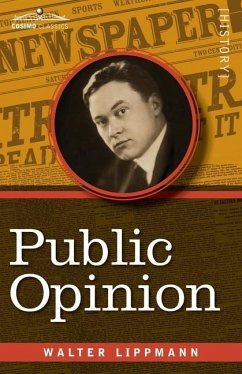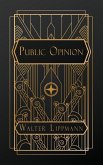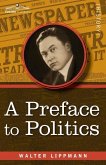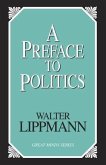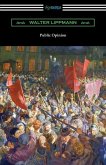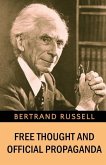"The manner of presentation is so objective and projective that one finishes this book almost without realizing that it is perhaps the most effective indictment of democracy... ever penned." --John Dewey, The New Republic (1922) Public Opinion, written in 1922, is one of Walter Lippmann's most influential works. This original replica has been called "the founding book of modern journalism," and is a classic textbook for political science, journalism, and media studies. Lippmann states in this critique of democracy, that "the average citizen lives in a world he cannot see, does not understand and is unable to direct." Moreover, the speed and sensationalism of the mass media (in the 1920s!) would make things worse not better. More information does not produce better-informed citizens, as is often assumed. According to Lippmann, the solution needs to be found in a governing class, a "specialized class of men," with the required knowledge to deal with the major challenges of the state. In essence, the traditional concept of democracy was impossible. In an era of increased criticism of governments, from Brexit in Great Britain and the yellow vests in France, to the youth protests in Hong Kong and the "deplorables" in Trump's United States, Public Opinion is a must-read for journalists, historians, and all who are interested in the media and current affairs.
Hinweis: Dieser Artikel kann nur an eine deutsche Lieferadresse ausgeliefert werden.
Hinweis: Dieser Artikel kann nur an eine deutsche Lieferadresse ausgeliefert werden.

